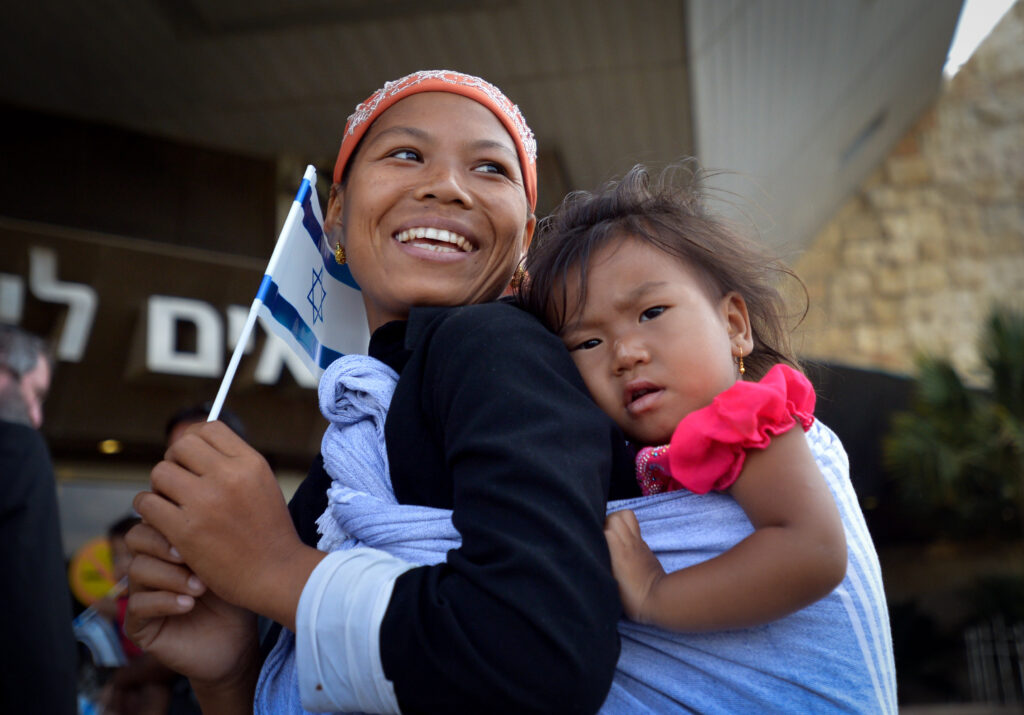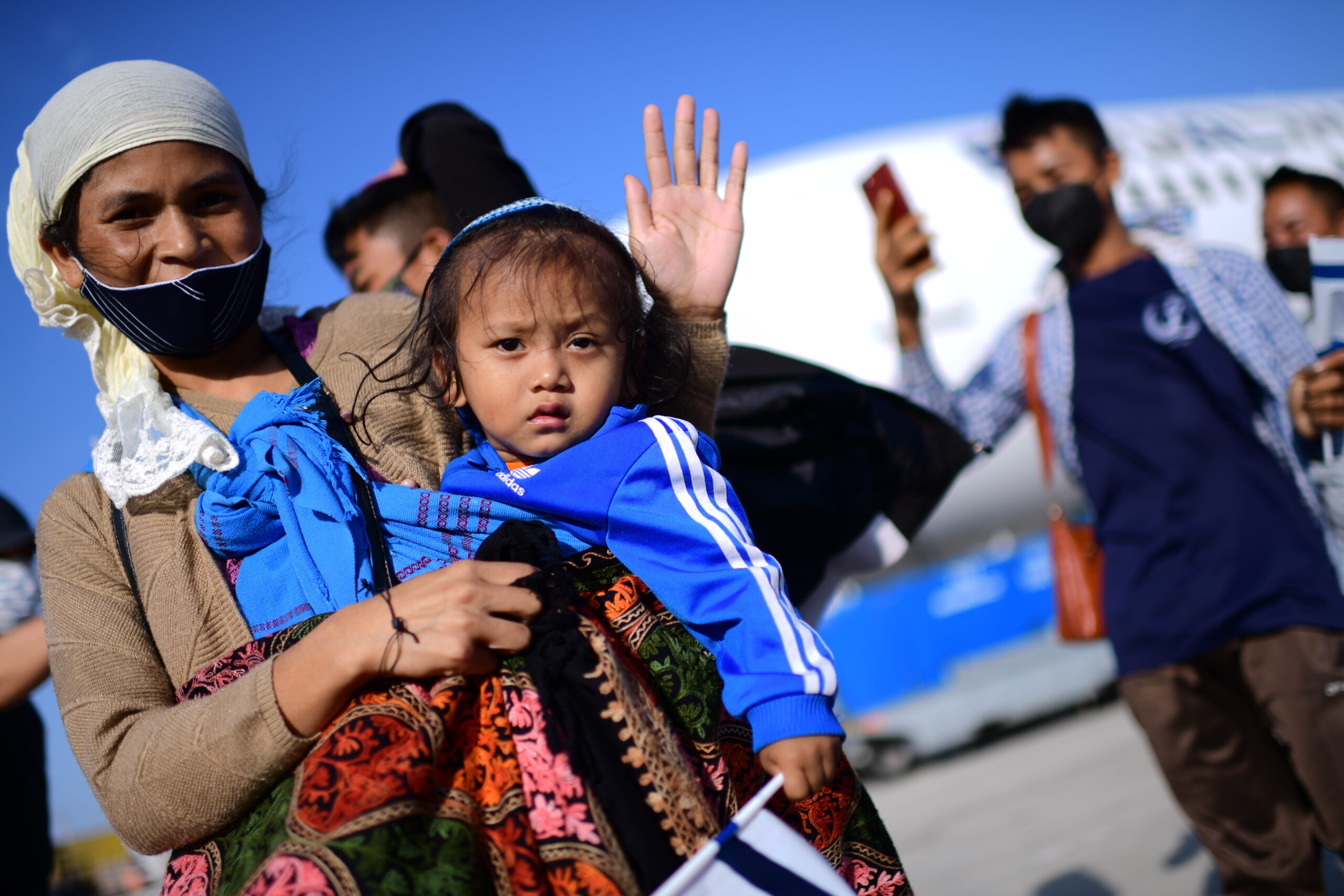The Israeli government made history on Sunday with a decision that connects the present to an ancient biblical promise. In a sweeping move, the cabinet approved a plan to bring the remaining 6,000 members of the Bnei Menashe community from India to Israel within five years, reuniting families that have been separated for decades and fulfilling what many see as a prophetic return.
While about 5,000 members of this community already live in Israel, having arrived over the past two decades, bureaucratic obstacles have prevented thousands more from joining their relatives. That changes now. An Israeli delegation departs next week to begin processing immigration applications in the northeastern Indian states of Mizoram and Manipur, with 1,200 immigrants expected to arrive by the end of 2026 and the remainder by 2030.
Prime Minister Benjamin Netanyahu, who submitted the proposal with Aliyah and Integration Minister Ofir Sofer, emphasized the strategic significance of the decision. “This is an important and Zionist decision that will also bring strengthening to the North and the Galilee,” he said. The newcomers will settle primarily in northern cities like Nof HaGalil and other communities devastated by war, joining existing Bnei Menashe populations in Maalot, Carmiel, Sderot, and communities throughout Judea and Samaria.
The project carries a price tag of NIS 90 million (approximately $27.4 million), covering immigration rights, housing, Hebrew instruction through ulpan programs, and Orthodox conversions. The ministry responsible for absorption will provide financial support, job guidance, temporary housing, and social programs. The plan was coordinated with the Indian government, addressing ethnic tensions in Manipur and Mizoram that have made the community’s situation increasingly precarious.
Netanyahu thanked Finance Minister Bezalel Smotrich and Minister Ze’ev Elkin, who oversees rehabilitation of the Gaza and northern borders, for their cooperation. The decision reunites families torn apart for years and strengthens communities in Israel’s north that desperately need population growth after suffering rocket attacks and evacuations.
The Bible itself anticipates exactly this scenario. The prophet Isaiah declared: “And it shall come to pass in that day, that the Lord will set His hand again the second time to recover the remnant of His people, that shall remain from Assyria, and from Egypt, and from Pathros, and from Cush, and from Elam, and from Shinar, and from Hamath, and from the islands of the sea” (Isaiah 11:11). The verse speaks of a gathering from distant lands, from places far beyond Israel’s immediate neighbors. The Bnei Menashe, practicing Christianity until recently while maintaining certain Jewish customs, embody this return from the far reaches of the earth.
5,800 members of the Bnei Menashe community will make aliyah by 2030 under a new Israeli government plan.
— Hen Mazzig (@HenMazzig) November 24, 2025
For a community that preserved Jewish tradition for thousands of years in India, this is more than immigration.
It’s a homecoming. pic.twitter.com/MIXwor3dFz
Israel’s Chief Rabbinate recognized them in 2005 as being “of Jewish descent,” though all immigrants must undergo Orthodox conversion upon arrival. The Sages teach that repentance and return to the covenant can restore what was lost through exile.
The Bnei Menashe left Israel more than 27 centuries ago. As part of the Ten Tribes, they were separated from the rest of Israel by the Assyrians at the end of the First Temple, 140 years before the Babylonian exile. Their ancestors wandered through Central Asia and the Far East for centuries, before settling in what is now northeastern India, along the border with Burma and Bangladesh.
The Bnei Menashe tribe last had contact with the Jewish people thousands of years ago, according to their oral history. They are distinct and separate from the community of Indian Jews known as Bnei Israel, who arrived in Israel in 1952. Also known as the Shinlung, the Bnei Menashe have an oral tradition, passed down for 2,700 years, which describes how the Assyrians invaded the Northern Kingdom of Israel in 721 BCE and took them into slavery.
Most of the Jews today, as their name implies, are descended from the tribe of Judah, sent out from Israel in the Babylonian exile. The Kohanim and Levites are descended from the tribe of Levi. The Ethiopian Jews have a tradition that they are descended from the tribe of Dan.
According to their tradition, they escaped slavery and fled to Persia and then Afghanistan. The Bnei Menashe later migrated toward Hindu-Kush and Tibet, eventually reaching Kaifeng in East Central China around 240 BCE.
In 100 CE, the Bnei Menashe were expelled from China. Some fled down the Mekong River into Vietnam, the Philippines, Siam, Thailand, and Malaysia. Others went to Burma and west to India.

The Bnei Menashe have always observed mitzvot (Torah commandments) and lived as Jews in every respect, and there are over 50 synagogues throughout northeastern India. The Bnei Menashe have a strong tradition that they are from the Tribe of Menashe. Throughout their sojourn in exile, the Bnei Menashe continued to practice Judaism just as their ancestors did, including observing the Sabbath, keeping kosher, celebrating the festivals, and following the laws of family purity. And they continued to nourish the dream of one day returning to the land of their ancestors, the Land of Israel.
Israel’s Absorption Ministry gave responsibility for the aliyah and resettling of the 712 Bnei Menashe members to Shavei Israel, a non-profit outreach organization that helps people around the world who are descendants of Jews strengthen their connection with Israel. Shavei will make arrangements with the local Indian government and fly the community from India to Israel. After the Indian Jews arrive, the organization will also be responsible for all aspects of their integration.
The Bnei Menashe have become an integral part of Israeli society. Of Bnei Menashe immigrants of military age, nearly all men (99%) and 10% of women join the IDF, with 90% of females performing sherut leumi, national service, due to religious reasons.
Bringing the Bnei Menashe to Israel is a matter of life or death. After years of inter-ethnic tension, fighting broke out in May 2023 between the majority Meitei people and the 50,000-strong tribal minority Kukis. The Jewish tribe, the Bnei Menashe, aligned with the Kuki, were caught in the crossfire.




